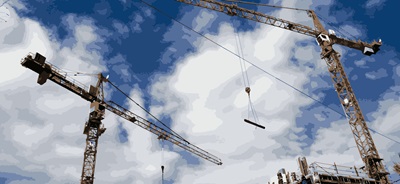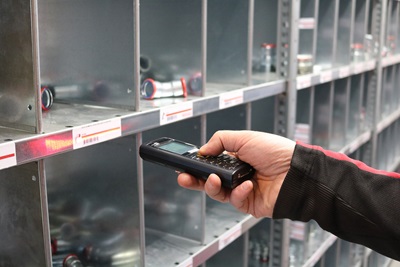What is Asset Based Lending (ABL)?
Asset based lending is a form of asset-based finance that uses the current and fixed assets on a company's balance sheet as security against lending. This includes assets such as:
- Debtors
- Inventory
- Plant and Machinery
- Property (including freehold and leasehold properties)
- Intangible Assets (e.g. intellectual property)
Asset based lending is widely regarded as a working capital solution of choice for SME's, mid-market, and increasingly, large, even multi-national businesses to generate optimal levels of working capital for 'strategic events' such as acquisitions, management buy-outs and buy-ins, refinancing and restructuring.
Our ABL appraisal process is designed to provide lenders and other investors/stakeholders with an accurate appraisal of the assets and a detailed recovery estimate under a variety of disposal scenarios. Guidance is provided on the best disposal method, timeline to do so and key recovery assumptions, enabling informed underwriting decisions to be made.
ABL valuations are backed by market data in order to ensure our clients are being provided with realistic and practical values that are achievable in insolvent sites.
Challenges to ABL Appraisals in Covid-19 Pandemic
The Covid-19 pandemic created a number of challenges to all industries and the ABL sector has been no different. Since March 2020, new appraisals and revolving collateral reviews we have conducted have had to adapt depending on client specific requirements.
Traditional site inspections have still taken place but at the height of the pandemic (especially with regards to revolving facilities), desktop valuations took place with the proviso a site inspection would take place at the earliest opportunity. In respect of new appraisals, such as for machinery and business assets, we were often presented with fixed asset registers which we then had to analyse in order for a list to be compiled and valued. Further due diligence such as photo verification of the assets were also undertaken.
The process was very similar for inventory appraisals and, on occasion, we conducted remote test counts via WhatsApp! During lockdowns, property valuations also continued but were sometimes limited to external inspection.
Numerous online video calls were also conducted during this time, highlighting the pros and cons of traditional appraisal methods.
No approach was deemed 'right' or 'wrong' or was suitable for every appraisal carried out. We used our experience and knowledge in a flexible manner to adapt to various client requirements and provide up-to-date market driven appraisals, highlighting potential factors that may impact the process and conclusion, in order for underwriting decisions to be made.
For a brief period, most transactional activity ceased and there was considerable uncertainty over values. However, that period passed quickly and it became apparent that most markets were functioning almost normally, at previous levels of value. However, there were exceptions to this, with impacts on specific sectors that retrospectively seem entirely predictable.
We held a sale of marquees and temporary canopies in the summer of 2020 that was a huge success, whilst a sale of buses and coaches around the same time struggled to attract bidders.
Overall, as transactions gathered pace after the initial lockdown, it seems that realisations have largely shrugged off any Covid-19 impact.

Construction Fleet Appraisals and New/Used Equipment Marketplace
Our machinery and business assets team specialises in the valuation of contractor's plant rental fleet, having conducted numerous appraisals in recent years, advising financial institutions in the asset based lending sector, as well as being engaged by contractors' plant companies. These valuations have led to growth, acquisitions, and investment in new plant and machinery.
During the Covid-19 pandemic, our team has been tracking and gathering large amounts of contractors' plant comparable evidence to produce more accurate, data-driven appraisals. Our analysis shows that the appetite for good, used, late model construction and agricultural machinery remains as strong as ever, with high realisations being achieved.
This is partly due to stocks of new plant and equipment being depleted. JCB recently announced that the majority of its products are now out of stock until 2022. Therefore, auctions and sales of second hand machinery have given end users the chance to obtain equipment in a more timely fashion, without long lead times.
Access to ‘cheap’ government funding through CBIL’s has also allowed users the opportunity to borrow at low interest rates and reinvest in their business as required. This is a trend we see continuing into 2022, with increased demand and reduced supply/availability.

Inventory Appraisals
As of 1st December 2020, the status of the HMRC in insolvency was changed in respect of certain outstanding taxes from unsecured to secondary preferential creditor. In simple terms, this means HMRC now ranks ahead of unsecured and floating charge holders in the distribution of funds following liquidation.
As inventory, and some P&M assets, such as those involved in hire fleet revolving facilities, which are akin to inventory lends, are secured under a floating charge, this has had a direct impact on lending against this asset class, with lenders having to reserve for HMRC liability in calculating the availability that can be generated from inventory. In practice, amounts owed to HMRC can reduce the availability generated from small inventory facilities to the point that they are no longer viable. We have seen a noticeable shift away from this sort of lending since the start of 2021.
Despite this, inventory can be a company’s most significant asset class, and an ABL’s ability to unlock value from it can release very significant working capital to the right business. The value relates to factors unique to each business, including how the stock is traded through the business and the gross margin generated, as much as to what the stock actually is. Accurate and detailed analysis and valuation is key, and our specialists have the experience and ability to assist ABLs in understanding this.

Property Appraisals
We are seeing an increase in the level of appraisal requests in respect of real estate assets as part of ABL proposals. In the main, the property types we see are industrial or warehouse/distribution properties i.e. the borrower's manufacturing and storage facilities. Whilst there are exceptions to these, office property tends to be ancillary to the main uses stated above together with areas of open storage and yard accommodation.
We are seeing little to no requirement in the 'high street' retail sector, partly due to the physical retail market generally and the high level of short leasehold property which will not form good security.
The industrial and distribution property market continues to perform strongly due to the switch to online shopping accelerated by Covid-19. We do not foresee a downturn in this market in the short to medium term.
We have seen more specialist property types being looked at, such as vineyards and fish farming infrastructure, however, this is most common in supporting the prime security, which is the inventory.
Largely, Covid-19 restrictions have not caused a problem when providing advice to lenders, provided that we, as valuers, can access the site and work around local or client restrictions.
Time frames have become stretched due to delayed contact with Local Authorities/Planning Departments as a result of continued office closures and home working.

For further information on Asset Based Lending, please contact a member of our team below.
Get in touch


Nick Blackwell
Senior Director - National Head of Property Restructuring



Email me direct
To:
REGISTER FOR UPDATES
Get the latest insight, event invites and commercial properties by email

